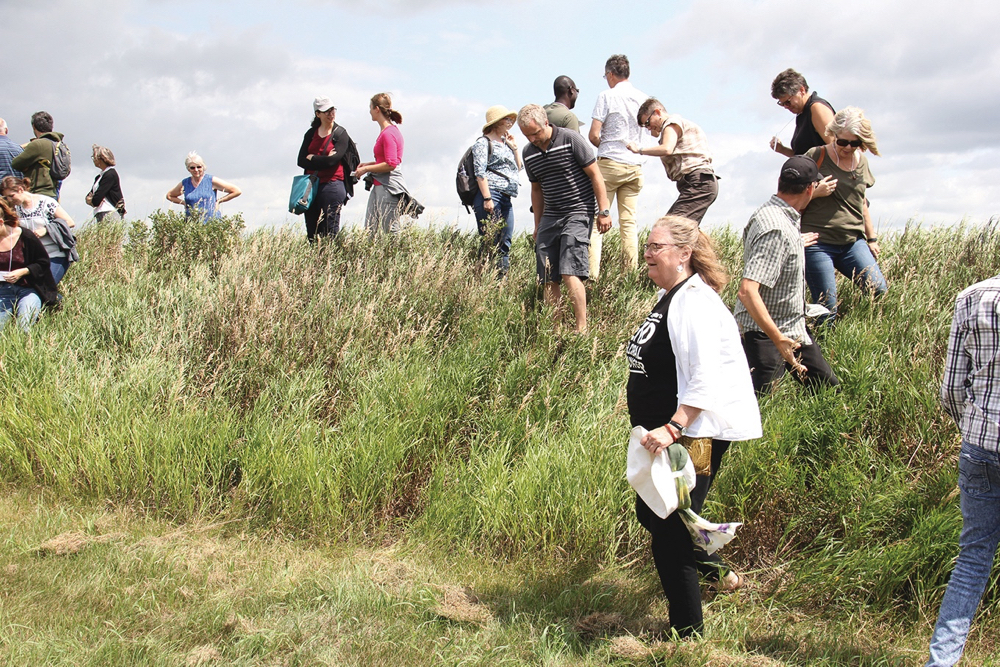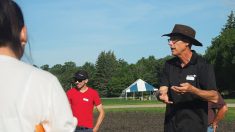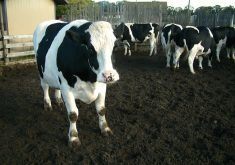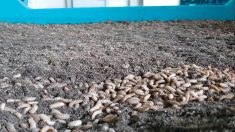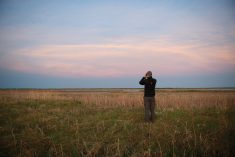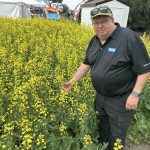When Prairie-dwellers think of soil erosion, they may think of iconic photos from the Dirty ’30s: towering clouds of black soil blowing across desolate land, teacups turned upside down against drifting grit.
But as Francis Zvomuya told the classroom of farmers and agronomists at the Global Forum on Soil Stewardship, soil degradation is far from being in the past.
Zvomuya, a soil scientist from the University of Manitoba, was the keynote speaker of the forum, hosted by the Canadian Foodgrains Bank in Carman in late July.
In his keynote address, he said about a third of the world’s soil is now degraded. Globally, 25 billion to 40 billion tonnes of soil are eroded annually. Five billion tonnes are eroded annually due to tillage.

“What it means is that we have a shrinking base or shrinking area of land on which we can grow crops,” Zvomuya told the Manitoba Co-operator. This, vis-a-vis a growing global population.
“It means a lot in terms of food security,” Zvomuya said. “We can’t grow as many crops as we used to. It also means that, you know, on a farm basis the yields are going down which has economic implications as well.”
About 10 per cent of Canada’s cropland has moderately to severely eroded soil, said Zvomuya, citing University of Manitoba Professor David Lobb.
This degradation takes several forms worldwide, said Zvomuya. This includes soil salinization through poor irrigation practices, nutrient imbalance, waterlogging, contamination, compaction, acidification, organic carbon loss and soil sealing.
Read Also

University of Manitoba honours three agriculture alumni
Cathey Day, Fred Greig and Kim McConnell were chosen for the University of Manitoba’s 2025 certificates of merit from the agricultural and food sciences faculty.
‘Soil sealing’ refers to arable land lost to pavement or urban sprawl. About 130,000 hectares (over 320,000 acres) of land have been lost to sealing in Canada, Zvomuya said in an interview.
On the Prairies, Zvomuya said residual nutrient levels in prairie soils are a “major threat” and are contributing to degradation of lakes.
“Soil erosion used to be the No. 1 issue, but conservation agriculture, including minimum and zero tillage, has drastically reduced this to minor levels,” said Zvomuya.
He added that crop yield losses due to soil erosion, including tillage erosion, still amount to $3.1 billion annually in Canada, according to estimates by University of Manitoba soil scientist, David Lobb.
Farmers at the conference said they still see “black snow” or “snirt” on snow-covered fields, which is evidence of wind erosion.
This was contrasted by a five- or six-foot ‘dike’ of soil that people were invited to climb during a field tour. The dike was caused by wind, which blew dirt against a fenceline. Older members of the tour recalled digging into a similar ridge and finding an entire fence buried beneath. Another fence had been built on top.
“If we run out of water, we pray for rain. If we run out of soil, we ask for forgiveness,” Zvomuya said during his keynote address, quoting Bob Kerrey. “There’s no better truth than that.”






